I don’t want to start up another flame war. We have enough of those already. Since my coverage of the Apple iPhone 5’s hardware, people started asking me which one is better, and which one they should get?
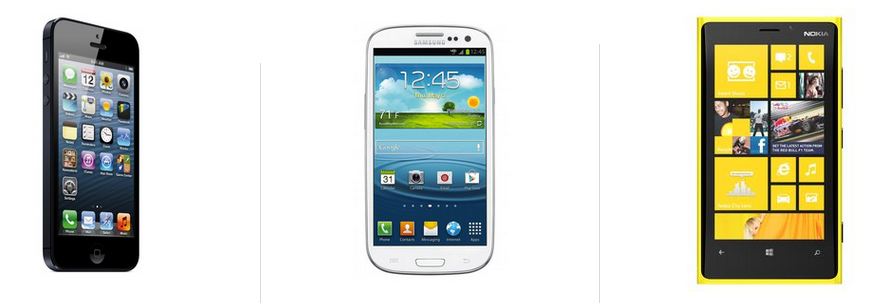
I will not push anyone to go get an Android, or go get a Windows 8 phone just to spite Apple. They seriously have a quality phone in their hands. Android has one, and Nokia, despite the bad press, also have a quality Windows 8 phone in the works.
2 of the devices I am about to talk about today have yet to be released, but they are considered to be the best in their operating system. I will use Samsung’s Galaxy S3 as a comparison model for Android simply because it is the current leader in the Android market.
Operating system
First, let’s get the operating system out of the way. If you want to get the highest quality in terms of apps, as well as fluidity and ease of use, then go with Apple’s iOS. Right now, the ecosystem in iOS is still the best in the league. Android is catching up, but it battles fragmentation daily, which degrades the overall quality of their apps ecosystem.
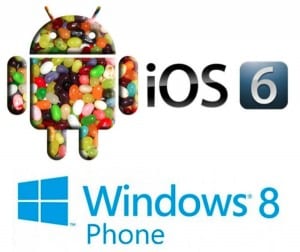 If you are looking for powers of customization, then Android is where you might want to go. It offers the best in customization of the look of the operating system. You can even make it look like an iOS or a Windows 8! It is also fairly good with productivity, something that will eventually tie or get beaten by Windows 8.
If you are looking for powers of customization, then Android is where you might want to go. It offers the best in customization of the look of the operating system. You can even make it look like an iOS or a Windows 8! It is also fairly good with productivity, something that will eventually tie or get beaten by Windows 8.
Windows 8 is a wildcard. There is still so much we don’t know, and while you can customize it to a certain degree, it is not a free as Android. It does have a lot of potential in terms of productivity value as it is based on Windows, which is known for productivity. Also, if you are the type who wants your pc and phone to look alike, then go ahead and pick up a Windows 8 device.
With the operating system out of the way, we want to tear the devices down to the hardware details. The operating system can only be as good as the hardware allows it. You can also argue that software dictates what hardware does, we know pretty much by now that the mobile operating systems make pretty good use of the hardware.
Display Size
Let’s start with something Apple is really proud of – the increased display size. They finally gave in to the pressure of some users asking for a bigger phone, so they made one taller. That’s bigger, right? With 4 inches across the screen, it displays a good 16:9 aspect ratio, which is great for movies. It still pales in comparison to the Nokia Lumia 920 with a 4.7 inch display and Samsung’s Galaxy S3 with a large 4.7 inch display.
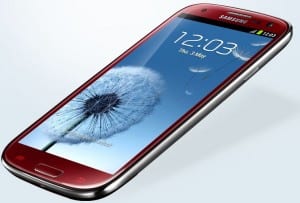 I wouldn’t say that larger is always better. Apple’s design is still the best for single handed use. The problem is, despite the fact that it was built for just one hand, most people really use two hands to use it.
I wouldn’t say that larger is always better. Apple’s design is still the best for single handed use. The problem is, despite the fact that it was built for just one hand, most people really use two hands to use it.
QWERTY keyboards are faster and easier to use with more than just one finger moving across the screen, and it is not really that comfortable to use a phone that expensive with just one hand’s grip out on the open road. Eventually, you still hold it with two hands. If that is the case, then a larger display does not really cause a problem with daily use. If you must use two hands, let them play with more space, right?
Display Quality
Apple loves the Retina display, and we love it too. It just so happens that the Windows 8 bet – the Lumia 920, has created an even sharper display. They have a higher pixel density. I wouldn’t say it is an automatic win for the Lumia 920. I mean if you can’t see the pixels already with a 326 ppi, then what is a 332 ppi going to do? Make something that looks real look better than real?
I am not trying to bash them in this area. I am just stating that they both win this round. I can still see the little dots on the Galaxy S3, which makes it look less beautiful than nature despite their “Nature UI”.
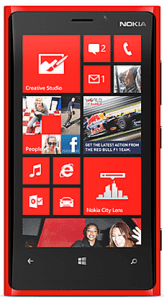 Sharpness aside, all three displays show beautiful colors. The Super AMOLED HD display still shows better color disparity and saturation. Sure, Apple improved their display to afford 44% better saturation but without real world side by side comparisons, I will just say that you can’t go wrong with the Super AMOLED HD display at this point.
Sharpness aside, all three displays show beautiful colors. The Super AMOLED HD display still shows better color disparity and saturation. Sure, Apple improved their display to afford 44% better saturation but without real world side by side comparisons, I will just say that you can’t go wrong with the Super AMOLED HD display at this point.
Processing Power
Ok, down to the gritty part. In the US, all three phones have dual core processors. Apple sticks to their own A6, while the rest relies on Qualcomm’s Snapdragon processor because of LTE compatibility issues. Worldwide, the Android powered Samsung Galaxy S3 was built with a quad core Exynos processor, Samsung’s own make. In sheer processing power, Android wins in the world view.
When it comes to graphics, spectators claim that the Apple iPhone 5 was able to display console-like graphics. I say that Android has been well capable of such a feat for a while now. It’s just the lack of Apps developed with high resolution graphics that are missing.
The game they demonstrated during the presentation was built with the highest graphical power they can muster at the time. If they port that to Android, I am sure there would be no problem. We will see if the Lumia 920 will be able to prove itself, but right now, it doesn’t hold many high graphic games either.
Storage
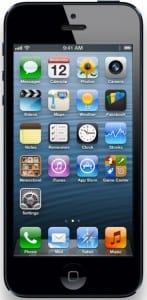 Let’s go over this quickly. Storage is always a problem for those who keep plenty of content. The general idea is that more storage is always a plus. You can choose between 16 GB, 32 GB or 64 GB all you want, but when it comes to expanding that built in storage capacity that you have bought, you are out of luck with the iPhone 5 and the Lumia 920.
Let’s go over this quickly. Storage is always a problem for those who keep plenty of content. The general idea is that more storage is always a plus. You can choose between 16 GB, 32 GB or 64 GB all you want, but when it comes to expanding that built in storage capacity that you have bought, you are out of luck with the iPhone 5 and the Lumia 920.
Of the three, only Android devices are generally equipped with a slot to expand storage. The Galaxy S3 has that option ready for you when you purchase it.
Sure, many would argue that you have the cloud, which you can take anywhere. You can take SD memory anywhere too, it is less expensive, and won’t require you to use up your data limit. For me, more is better when it comes to storage. When you have built in memory, cloud storage and expandable storage, you are set.
Battery Capacity
Whenever people ask me about battery life, I always say your mileage may vary. For the sake of today’s face off, let’s stick to what’s on paper. The iPhone 5 is rated at 225 hours standby and 8 hours talk time with 3G on. The Galaxy S3 is rated at 790 hours standby and [11:40] hours talk time with 3G. The Lumia 920 is rated at 300 hours standby and 10 hours talk time with 3G.
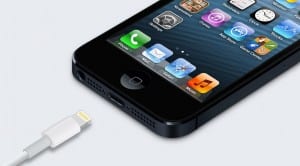 The numbers are pretty solid, and this round goes to Android in an ideal world. Too bad the world is not ideal, and there is always something that will affect your battery consumption. Generally, Android’s take on multitasking is a battery drainer.
The numbers are pretty solid, and this round goes to Android in an ideal world. Too bad the world is not ideal, and there is always something that will affect your battery consumption. Generally, Android’s take on multitasking is a battery drainer.
Connectivity and Sensors
These days, connectivity options are mostly the same, with speed and range being the only difference. They all have Wi-Fi, they all have Bluetooth, and they all have cellular network connectivity. The new iPhone 5 excels in this area because they have incorporated a new technology that combines different radios in just one chip. The iPhone 5 is capable of working with so many networks around the world by default.
Magnetometer, Proximity, Ambient light, Gyroscope, Accelerometer, Barometer sensors are present across all three. Apple decided against NFC this year, which is a bummer. This leaves them closed to any advancement and possibilities in NFC technology until the next hardware update. The other two decided to embrace the tech and make it available. It doesn’t have to be on all the time. You can turn it off if you don’t want it. What matters is that it is there, and you can use it when the time comes.
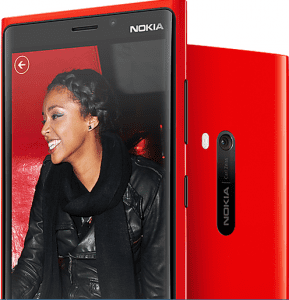 I also want to point out that while the new “Lightning” dock connector looks great, the Micro USB is still a lot easier to find compatibility for and a lot smaller on the device. I have to admit though, the Lightning dock looks great and is apparently faster too, and so that is always a plus.
I also want to point out that while the new “Lightning” dock connector looks great, the Micro USB is still a lot easier to find compatibility for and a lot smaller on the device. I have to admit though, the Lightning dock looks great and is apparently faster too, and so that is always a plus.
Camera capabilities
All three devices support 720p for the front facing camera, but the Galaxy S3 clearly wins in quality and size. Samsung put in a 1.9 megapixel camera at the front, with the other two at a low 1.2 megapixels. I guess the reason why they made the front camera so goon on the S3 was because of the added face/eye tracking features like smart stay and face unlock.
The back camera is a battle that leaves the Galaxy S3 out. The Lumia 920 has an 8.7 megapixel camera while the other two have an 8 megapixel camera built in. The sensor quality is definitely a battle between the Lumia 920 PureView and the iPhone 5 iSight since it was already proven that the iPhone 4S beats the Galaxy S3 in camera quality.
According to the Apple presentation, the new camera is mostly the same with the iPhone 4S camera but it is lighter, and takes in a bit more light. It is also apparently 40% faster than the old model.
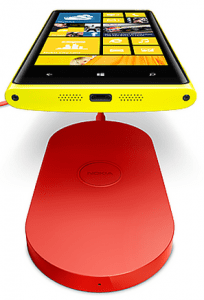 The PureView technology is still in an unfinished form, but even in that state, it takes much better images in low light conditions compared to the iPhone 4S. They have developed a better imaging technology compared to what was on the iPhone 4S, so if the iPhone 5 had mostly the same performance, then we have a clear winner.
The PureView technology is still in an unfinished form, but even in that state, it takes much better images in low light conditions compared to the iPhone 4S. They have developed a better imaging technology compared to what was on the iPhone 4S, so if the iPhone 5 had mostly the same performance, then we have a clear winner.
I think there is very little to worry about in this department, so if you are looking for the best camera between the three, you are looking at a PureView in your future.
Wireless Charging
Ok, I am just putting this here for comparison purposes, but personally, I feel this is actually a useless gimmick. Wireless charging allows you to charge slower but without a cable. You just put this on top of the wireless charging station. The iPhone 5 does not support this, while the Samsung Galaxy S3 can with an additional accessory. The Lumia 920 has wireless charging built into the device.
Overall
So in the end, today’s smartphones have caught up with each other. Hardware and default non-OS based features are now kind of standard with the flagship phones. They top one another in one or two places, but no one is a clear winner. From here on out, it feels like the iPhone 5 is no longer the benchmark. It no longer feels like a device to beat. It is just like everyone else now, trying to catch up to the latest trend in technology’s incremental developments.
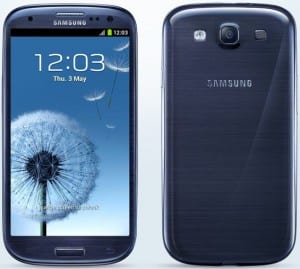 Like I said in the previous article, the most disappointing of the three is the iPhone 5 which is supposed to be the newest device of the three and what people normally look at as a benchmark. All it does is stay on par with what the rest have already pulled out into the public, while keeping the Apple proprietary details such as their own dock connector.
Like I said in the previous article, the most disappointing of the three is the iPhone 5 which is supposed to be the newest device of the three and what people normally look at as a benchmark. All it does is stay on par with what the rest have already pulled out into the public, while keeping the Apple proprietary details such as their own dock connector.
The Lumia 920 does this too, but that is probably because they are still experimenting on what to do with their phones on Windows 8. They are still in the dark with the new OS, and they don’t want to pull off any big moves at this point, so staying with the minimum specifications is probably all they can afford to do right now, while showcasing a revolution of their own with the PureView OIS camera. Once they have a better grasp of the OS, Windows 8 devices may start pushing the envelope to its limits.
With everything I have laid out before you, the choice is yours and yours alone. Everyone’s circumstances are different, and everyone’s needs are different. What matters is that you get what you need, and what works for you. I hope that this little guide will help you with that financial decision.
Image sources: Nokia.com, Samsung.com, Apple.com, androidauthority.com, theverge.com


















